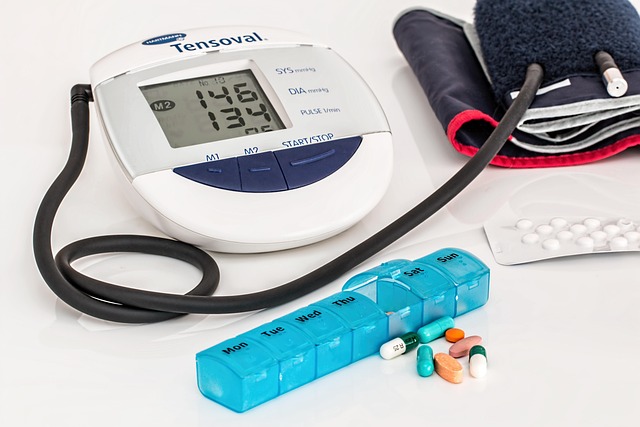Vitamin B12 deficiency symptoms mimic other conditions like fatigue and memory problems. The Standard Thyroid Blood Test UK often includes B12 levels, with normal range typically 110-910 pg/mL. Results below 110 pg/mL may indicate deficiency; in the UK, a result of 200 pg/mL or lower requires immediate medical attention. This test is a routine procedure for diagnosing thyroid conditions and evaluating thyroid health.
“Vitamin B12 deficiency is a growing concern, affecting people across the UK. This comprehensive guide aims to demystify the detection process through blood tests. Learn how to recognize subtle symptoms that may indicate a deficiency and understand the role of the Standard Thyroid Blood Test UK in diagnosing this issue. By interpreting your test results, you’ll gain insights into maintaining optimal health. Don’t overlook potential B12 deficiencies; with early identification, simple interventions can prevent serious complications.”
- Understanding Vitamin B12 Deficiency Symptoms
- Interpreting Blood Test Results for B12 Levels
- Standard Thyroid Blood Test UK: What to Expect
Understanding Vitamin B12 Deficiency Symptoms

Vitamin B12 deficiency can often go unnoticed, as its symptoms are similar to those of other conditions. Common signs include fatigue, weakness, and reduced energy levels. You may also experience memory problems, difficulty concentrating, and changes in mood or behaviour. In more severe cases, a deficiency can lead to neurological issues such as tingling or numbness in the hands and feet, balance problems, and even vision impairment. Recognising these symptoms is crucial, especially for those at higher risk, including older adults and individuals with certain medical conditions.
A standard Thyroid Blood Test UK often includes measurements of B12 levels alongside other nutrients. If you experience any concerning symptoms or are in a high-risk category, consulting your healthcare provider is essential. They can interpret the results of this blood test to accurately diagnose a Vitamin B12 deficiency and recommend appropriate treatment options.
Interpreting Blood Test Results for B12 Levels

When interpreting blood test results for Vitamin B12 levels, it’s crucial to understand that healthcare professionals in the UK often use the standard thyroid blood test (TBT) as a reference point. This test provides valuable insights into your overall nutritional status, including B12 deficiency. A normal range for Vitamin B12 is typically between 110 and 910 picogrammes per millilitre (pg/mL). Any result below 110 pg/mL may indicate a potential deficiency, prompting further investigation.
It’s important to remember that these values can vary slightly between laboratories, so discussing the specific reference ranges with your doctor is essential. In the UK, healthcare providers often consider a result of 200 pg/mL or lower as indicative of a significant B12 deficiency, which may require immediate medical attention and intervention.
Standard Thyroid Blood Test UK: What to Expect

In the UK, a Standard Thyroid Blood Test is a common procedure used to diagnose thyroid-related conditions and assess your overall thyroid health. This test typically involves taking a small sample of blood to check for specific hormone levels. The primary hormones measured are thyroxine (T4) and triiodothyronine (T3), which play crucial roles in regulating metabolism.
During the test, a healthcare professional will take a blood sample from your arm, usually at a clinic or a doctor’s surgery. You might feel a slight pinch, but it is generally a quick process. The sample is then sent to a laboratory for analysis, where technicians measure the levels of T4 and T3 hormones in your blood. Normal ranges vary slightly depending on age and other factors, but typically, results will indicate whether your thyroid hormone levels are within a healthy spectrum, helping healthcare providers identify potential issues such as hypothyroidism or hyperthyroidism.
Detecting vitamin B12 deficiency through blood tests, such as the standard thyroid blood test UK, is a crucial step towards maintaining overall health. By understanding symptoms and interpreting results accurately, individuals can promptly address any deficiencies, ensuring optimal well-being. Regular checks, especially for at-risk groups, are essential to prevent long-term complications.
